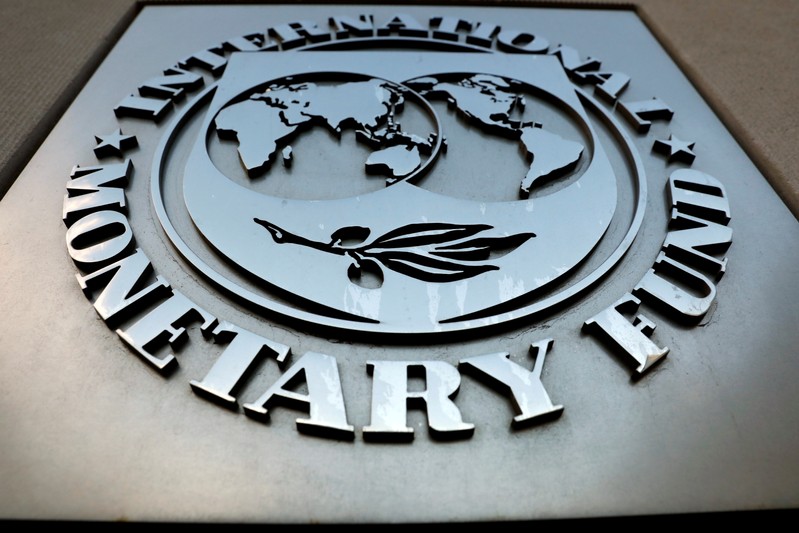
FILE PHOTO: The International Monetary Fund (IMF) logo is seen outside the headquarters building in Washington, U.S., September 4, 2018. REUTERS/Yuri Gripas/File Photo
July 19, 2019
DUBAI (Reuters) – The IMF urged Yemen’s internationally recognized government on Friday to extend its payments of public sector salaries to the whole country to help the war-shattered economy to recover.
The IMF also praised the government, which is based in the southern port of Aden after being ousted from the capital Sanaa by the Iran-aligned Houthi movement, for already making some payments to workers and paying all pensions in areas of Yemen outside its own control.
The United Nations has described the situation in Yemen as the world’s worst humanitarian crisis, after four years of conflict between the Houthis and the Saudi-backed government forces, in which tens of thousands of people have been killed.
“We urge the government to pay all civil service salaries throughout the country,” the International Monetary Fund said in a statement after an IMF team met Yemeni officials and private sector participants in Amman, Jordan on July 10-18.
The war caused runaway inflation and restricted the flow of goods into and around Yemen, pushing millions into hunger and joblessness and crippling public services such as health and education.
The Houthis control the main population centers including Sanaa.
The conflict has also split the central bank into two – one based in Aden under government control and one in Sanaa under Houthi control – hindering public sector salary payments and imports.
But the government began paying salaries and pensions to Yemenis at least in some Houthi-controlled areas early this year and the IMF urged it to continue this practice and extend the payments to all parts of the country.
In its statement, the IMF said economic growth had “moved back into positive territory, albeit now from a much lower per capita income level” after sharp declines in 2014-17.
“Donor financing and increased hydrocarbon receipts were key factors in quelling last year’s dramatic volatility in the exchange rate and food prices, and basic food imports increased toward prewar levels, supported also by humanitarian aid,” it said.
The IMF also called for further donor financing, spending restraint by the government and improved revenue collection.
(This story corrects location of IMF visit to Amman from Yemen in paragraph 4)
(Reporting by Lisa Barrington; Editing by Gareth Jones)

